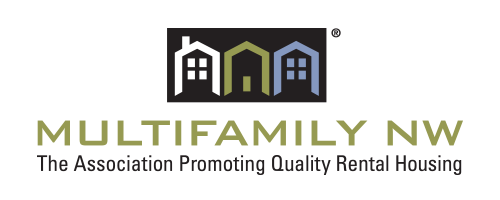HUD Guidance Screening – April 29, 2024
On April 29, 2024, Housing and Urban Development (HUD) released guidance applicable to all Housing Providers related to the screening of applicants in the form of a Joint Statement and two guidance documents related to screening of applicants in relation to compliance with the Fair Housing Act.
The Joint Statement entitled “Joint Statement on Enforcement of Civil Rights, Fair Competition, Consumer Protection, and Equal Opportunity Laws in Automated Systems” addresses the use of Artificial Intelligence (AI) in relation to the use of software and algorithmic processes in screening of applicants. HUD contends that the use of AI could lead to discrimination against applicants based on their membership in a protected class and specify that reliance on AI is not a defense to a fair housing claim.
The guidance document entitled “Guidance on Application of the Fair Housing Act to the Screening of Applicants for Rental Housing” provides more specific information on several issues impacting the screening of applicants. A great deal of what is discussed in the attached document mirrors requirements that are already spelled out in the Oregon Residential Landlord Tenant Act and local Ordinances. The document should be reviewed carefully as a reminder of obligations under local, state and federal laws related to screening, but some of the more salient points are summarized below as follows:
- Use of AI. HUD reiterates that it is the responsibility of Housing Providers to ensure that AI is not being used in a discriminatory manner when screening applicants.
- Liability of Housing Providers and Screening companies. HUD clarifies that Housing Providers are potentially responsible for the discriminatory acts conducted by screening companies in the course of screening applicants, and that screening companies are potentially liable under the Fair Housing Act (FHA) for facilitating a discriminatory decision, even if the final decision is made by the Housing Provider as a formal matter. This can occur even if the screening company does not direct the Housing Provider explicitly to accept or deny an applicant, and even if the applicant signs a disclaimer.
- Criteria. Screening criteria must be well-tailored to predict future behavior relevant to tenancy and must be necessary for achieving a legitimate, non-discriminatory interest. Given that Housing Providers are responsible for avoiding discriminatory practices, Housing Providers should review the information provided in a screening report independently to determine if the information in the report is, in fact, disqualifying.
- Selection of Screening Companies. Housing Providers should inquire into the ways in which the company ensures its screenings are accurate and nondiscriminatory. Housing Providers should select screening services that (a) offer customizability; (b) frequently update their data; (c) monitor for unjustified discriminatory effects; (d) report clear and specific reasons for denials; (e) allow individuals to correct inaccuracies; (f) publicly disclose key details about their screening systems; and (g) comply with all applicable Federal, state, and local laws.
- Screening companies. Screening companies are encouraged to engage in higher level monitoring of their models to ensure that their tools and practices are not discriminatory.
- Housing providers should check screening results against their own criteria for accuracy before making a determination and not simply follow the recommendation of the screening results. Housing providers should not ask applicants questions inside or outside the scope of their screening policies to avoid discouraging applicants from the process.
- Applicants should be given information about how evidence of mitigating circumstances can be submitted and will be treated, how to request a reasonable accommodation for a disability, and how to contest an inaccurate, incomplete, or irrelevant record.
- When denying applicants, credit scores should be listed as the basis for the denial and the screening reports should be attached to the denial.
- Denials based on credit scores should be avoided in circumstances in which applicants have consistent rental assistance for their tenancy, a cosigner, or a history of surviving domestic violence.
- Having no credit history or limited credit history (i.e., an absence of credit history, negative or positive) is even less relevant than having poor credit history. Admitting applicants so long as they do not have a negative credit history can be a more precise policy than requiring a positive credit history. In addition, automated screening tools can be programmed to rely on other available financial information as a substitute for an absent credit score.
- Likewise, most jurisdictions allow for “no fault” evictions, for example, where the housing provider removes their property from the rental market. Models that use eviction records, irrespective of complexity, should be programmed to distinguish between different types of evictions and varied outcomes.
The Guidance document entitled “Guidance on Application of the Fair Housing Act to the Advertising of Housing, Credit and Other Real Estate-Related Transactions through Digital Platforms” provides more specific information on the use of AI and algorithmic processes to facilitate advertisement targeting and delivery.
Housing providers should carefully vet any outside programs utilized for advertising to ensure that those programs are in compliance with the attached guidance. No discriminatory language should be used in the advertising, nor should photos of persons be included, or language such as “no criminal records” or “good credit only” be included in advertisements. Custom and mirror audience tools and use of AI to determine which ads are actually delivered to applicants should also be avoided.
In conclusion, Housing Providers should be using a forms program that addresses the concerns and directives in their application, screening, and denial documents. Housing Providers and Screening Companies should confer regarding best practices due to the interconnected nature of their relationships. Attorneys should be consulted for clarification or assistance when managing applications and advertising, especially using AI.
